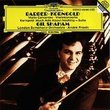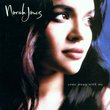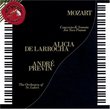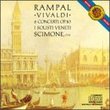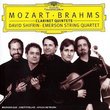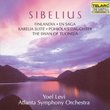| All Artists: Sergey Rachmaninov, Valery Gergiev, London Symphony Orchestra, Evgeny Kissin Title: Rachmaninoff: Concerto No. 2; Etudes-Tableaux Members Wishing: 0 Total Copies: 1 Label: RCA Release Date: 8/10/1993 Genre: Classical Styles: Forms & Genres, Concertos, Instruments, Keyboard Number of Discs: 1 SwapaCD Credits: 1 UPC: 078635798227 |
Search - Sergey Rachmaninov, Valery Gergiev, London Symphony Orchestra :: Rachmaninoff: Concerto No. 2; Etudes-Tableaux
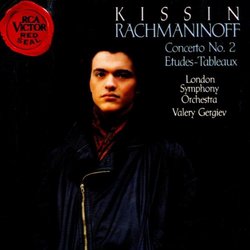 | Sergey Rachmaninov, Valery Gergiev, London Symphony Orchestra Rachmaninoff: Concerto No. 2; Etudes-Tableaux Genre: Classical
![header=[] body=[This CD is available to be requested as disc only.]](/images/attributes/disc.png?v=15401716) ![header=[] body=[This CD is unavailable to be requested with the disc and back insert at this time.]](/images/attributes/greyed_disc_back.png?v=15401716) ![header=[] body=[This CD is available to be requested with the disc and front insert.]](/images/attributes/disc_front.png?v=15401716) ![header=[] body=[This CD is unavailable to be requested with the disc, front and back inserts at this time.]](/images/attributes/greyed_disc_front_back.png?v=15401716) |
Larger Image |
CD DetailsSimilar CDsSimilarly Requested CDs
|
CD ReviewsPowerful Rachmaninoff Joseph W. Hyink | Greer, SC USA | 09/24/2005 (5 out of 5 stars) "Because Rachmaninoff's music mirrors the Russian culture, I have often noted that no one plays Rachmaninoff like a Russian. Rachmaninoff's Piano Concerto No. 2 and Etudes-Tableaux, played by the Russian Evgeny Kissin, is unparalleled in mastery, beauty, and power. The album begins with one of the most sensitive interpretations of Rachmaninoff's second piano concerto that I have heard (on par with Vladimir Ashkenazy's, a fellow Russian). Kissin understands the flow of the piece from beginning to end. As a result, he builds the tension by accentuating the rich chord progressions that fill the piece. He then resolves that tension with the precision of a story-teller and the sensitivity of a master artist. Though the music stretches the ability of even the greatest pianists, Kissin plays through the difficulty in order to paint a landscape of musical progression. He hears and invites his audience to hear the intricate sub-plots that recur all throughout the work. Perhaps Rachmaninoff's most famous composition is married with a true master artist. The album ends with six powerful Etudes-Tableaux. Once again, Kissin hears and emphasizes both the predominant theme as well as the innumerable sub-themes, often overlooked by lesser musicians. My favorite is Etude-Tableau No. 5 in E-flat minor. This extremely difficult piece builds tension through increased dissonance until a lofty climax. That dissonance almost becomes unpleasant to the ears, creating an atmosphere of extreme melancholy. I imagine that tension mirroring the inner turmoil that an individual experiences through a difficult time of life. But when that tension and internal cacophony can get no greater and the person is at the point of breaking, grace comes! The beauty of the resolution is far more beautiful against such a dark backdrop. And any person who has been through difficulties can fully enter into the emotion of the music. And anybody who is currently experiencing pain and suffering can take hope, even from this music, that resolution will come." Finally--a pianist lets the music speak for itself! C Dub | USA | 12/16/2002 (5 out of 5 stars) "I think I own about 5-6 other recordings of this, but this one takes the cake. I'd say that Kissin's clarity on this piece is what impresses me the most, although I'd also say that his other strengths are right up there. Regarding clarity, the passagework right after the initial occurrance of the 1st theme in the beginning of the 3rd movement is clearer than you will hear by any other performer--Kissin is simply the best there is in terms of technical preparation and execution. But once you get over how impressive his technique was, listen to the phrasing he manages to observe as well! I haven't heard any other pianist perform this section as clearly nor with such exquisite detail to phrasing, which is a reflection of both his technique and musicianship, THE two elements of pianistic criticism. And this is also indicative of the rest of the concerto. The only area in which I'm disappointed is his climax of the 1st movement, although he DID perform it according to the score. The climax (about halfway through the 1st mvt.) is written at fortissimo, which is actually down a dynamic notch from fortissISSimo (fff) from the measure before. So it's kind of a let down. But, as I said, it's written in the score that way, and the only pianist I've heard perform it the way I prefer is Richter (DG). Nevertheless, Kissin's performance is still my favorite.Concerning the etudes: Wow. The A minor (op. 39 no. 2) is absolutely breathtaking. One can't ask for better taste in timing than what Kissin has to offer. Rachmaninoff once said that he believes that every piece has one and only one climax, and everything else before or after is in one way or another coming to or from that point. This is easier said than done, but Kissin pulls it off, never leaving the listener in doubt as to exactly where that climax is, and also never surprising the listener with its placement. The E-flat minor (op. 39 no. 5) etude shares many of the same values as the previous--again, particularly at the climax. His timing is impeccable. And the other A minor (op. 39 no. 6) isn't so much amazing because of the climax (surprise!) but more because of his brilliant clarity, dynamic contrast, tension and release, and performance of the passages that can be truly hair-raising if executed correctly.This is a must buy. I feel as if there's almost empirical evidence for this. It's a recording that one can use to convince any listener that these are the best recordings of these pieces available. If you want a recording that's clouded by the personality fragments of the performer, do not buy this recording. If you want to get to know the music rather than the performer, this is the one to buy." A so-so recording.... Xiao He | Chino Hills, CA | 09/06/2003 (4 out of 5 stars) "having listened to this recording, I finally confirmed what I had been thinking, which is that Kissin is not a suitable pianist for Russian music! I don't intend to infuriate his fans, but this is what i truly feel. Yes, in terms of technique, he is undoubtedly one of the best. However, I don't hear the tension, the emotional conflicts, and the struggling that are inevitable in Russian music, especially in Rachmaninoff's compositions. For those who wanna collect all the versions of Rachmaninov No.2, go ahead and get this CD, but for those who don't wanna spend money again and again in order to find the BEST, please choose Weissenberg or/and Richter."
|

 Track Listings (9) - Disc #1
Track Listings (9) - Disc #1

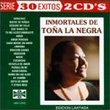

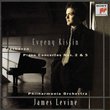
![The Very Best of the Platters [Mercury]](https://nationalbookswap.com/cd//m/61/5361/15361.jpg)
